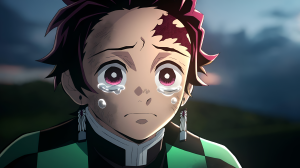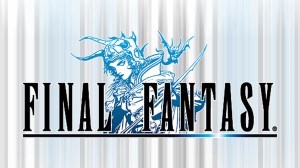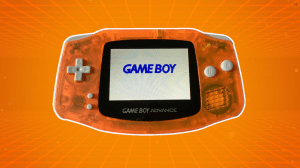When you credit a game with having “a bit of everything,” that descriptor is usually followed with something that discredits it or reigns the compliment back in, something like “but it doesn’t do anything exceptionally well.” Judgment is an exception to that expectancy. It’s full of what feels like an endless amount of activities to pursue, and it’s got all the right foundations to keep you engaged and make you want to see more of Kamurocho through the eyes of a new protagonist.
Videos by ComicBook.com
From someone who has watched bits of gameplay from Ryu Ga Gotoku Studio’s Yakuza series but never actually played through a full game, Judgment feels like the perfect starting point. It carries over praised combat systems and other features form the studio’s main series and returns veterans to a familiar setting, but the fact that laywer-turned-private-investigator Takayuki Yagami is a new character means you won’t be playing as anyone you’re expected to already know. He’s often called “Tak” in Judgment, and through his perspective, you’ll solve some of Kamurocho’s biggest crimes and mysteries as a character who’s we’ll definitely need to see more of after this game.
The crime-solving aspect of Judgment is its most defining characteristics outside of the fact that it’s a Yakuza spin-off, though calling it that almost seems to do it a disservice. Like Kazuma Kiryu meets Phoenix Wright, you’ll be throwing a relatively equal amount of punches and accusations around in Judgment. You’ll solve everything from cake culprit cases to high-profile legal battles as you take on the main and side quests, the latter of which will keep you busy for hours and are what makes the game feel so meaty. Judgment’s main story is absolutely brilliant itself, and it’s the main reason I’m hooked. I haven’t fully completed the main story yet which is why it’s more appropriate to say I am hooked as opposed to was hooked, but with 30ish hours dropped into the main and side stories already, it still feels like there’s a lot more to do in Judgment.

Since crime drama and detective work is at Judgment’s core, it refreshing to see that almost every part of this component has been executed well. Investigating crime scenes and places of interest awards you with information and skill points, and doing things like throwing a cat into serious moments for you to find keeps the Yakuza humor intact. It was actually surprising to see how much the game will make you work for your cases though. If you don’t pay close attention to what your fellow Kamurocho citizens say or review your cases’ evidence, you might find yourself stuck with only a fuzzy idea of what to do.
If there was one part of Tak’s investigative career that isn’t fulfilling though, it’s when he has to follow someone. Chases full of QTEs are perfectly fine here, but having to slowly walk near someone while avoiding their gaze and stopping every 15 seconds to hide behind something is a slog. It’s essentially a mini-game built around the idea that an NPC will always walk slower than you, except this time they’re in front of you and they stop a lot. You’ll have to do these missions fairly often, and nothing in the game’s impressively expansive skill tree helps since those missions are essentially impossible to fail anyway.
But when you grow tired of following people or looking for evidence in cluttered areas, Judgment lets you take a break with countless activities and sidequests throughout Kamurocho. Crack down on perverts through extra missions, defend the streets from gangs, blow off some steam at the batting cages, or even play with a claw machine or Judgment’s version of House of the Dead which is way more addicting than it has any right to be.
You can also just roam the streets and look for fights while perfecting Tak’s Crane and Tiger fighting styles. Judgment is Yakuza fighting at its finest and has a skill tree full of powerful moves and abilities that you’ll need if you hope to go toe-to-toe with enemies later on. You’ll want some of those in your arsenal if you want to avoid getting stunlocked, something that happens perhaps a bit too often in Judgment, but combat feels fluid for the most part. Locking onto enemies never feels quite as intuitive as it should be, but sometimes it’s beneficial to not be restricted to one target, especially if you’re fighting in Tak’s Crane style.
One of the most addictive and rewarding parts of Judgment is its friendship system that awards you with gifts, allies, experience, and opportunities. Once you start finding people in need and see what they can do for you in return, it’ll be hard to pass up their quests. You’ll soon have shop owners throwing you chopsticks to assist you in battle and have a “ninja” swoop into your fights to even the odds. Like Tak, the everyday citizens Kamurocho have their own stories, and once you get started, you’ll want to see all their missions through to their ends.
With how much there is to do in Judgment, this is a game that looks like it could easily turn into a 60- or 70-hour experience even if you don’t see yourself as a completionist. It’s a crime drama for people who don’t just want to smash square and triangle for endless combos and it’s an adventure-driven brawler for people who don’t just want to spend all day cracking cases. Judgment might have ridden on Yakuza’s success to get people’s attention, but with everything this game accomplishes, here’s hoping we get another game in order to see more of Judgment and Tak in the future.
Rating: 4 out of 5
Judgment releases exclusively for the PlayStation 4 on June 25th. A review code was provided by the publisher for the purpose of this review.








